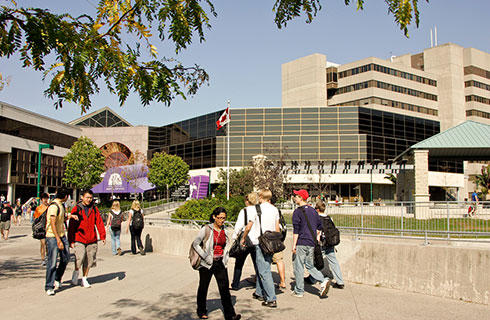国际学生入学条件
Minimum requirements for admission to graduate study:
A bachelor’s degree or recognized equivalent from an accredited institution.
Minimum GPA of 3.0.
Sufficient undergraduate training to undertake graduate work in the chosen field. This includes such undergraduate majors as: biological sciences, structural biology, physics, math, and chemistry. Laboratory experience is highly recommended.
GRE scores. We do not have set requirements for GRE scores. Outstanding GRE scores alone do not guarantee admission, nor do low scores disqualify an applicant. Three letters of recommendation, minimum (up to five are accepted): Letters of recommendation must be submitted online as part of the Graduate Division’s application process. Letters are also due Nov 30, so please inform your recommenders of this deadline and give them sufficient advance notice. It is your responsibility to monitor the status of your letters of recommendation (sending prompts, as necessary) in the online system. Unofficial copies of all relevant transcripts, uploaded as part of the online application, Applicants are required to take the Graduate Record Examination and have their exam scores reported to the University. Top applicants who are being considered for admission will be invited to visit campus for interviews with faculty. If the applicant comes from a country or political entity (e.g., Quebec) where English is not the official language, adequate proficiency in English to do graduate work, as evidenced by a TOEFL score of at least 90 on the iBT test, 570 on the paper-and-pencil test, or an IELTS Band score of at least 7 on a 9-point scale (note that individual programs may set higher levels for any of these)
展开
IDP—雅思考试联合主办方

雅思考试总分
7.0
- 雅思总分:7
- 托福网考总分:90
- 托福笔试总分:570
- 其他语言考试:NA
CRICOS代码:
申请截止日期: 请与IDP联系 以获取详细信息。
课程简介
Systems neuroscience addresses the function of neural circuits in intact organisms. The ultimate goal of this area of research is to understand the function of the nervous system at a variety of levels, from single cells to entire networks that mediate complex behaviors such as vision, audition and motor responses. Because systems neuroscience addresses such a broad range of issues, it integrates experimental, analytic and theoretical techniques from a wide range of disciplines. In particular many important analytic and theoretical approaches were developed first in physics and engineering and have been modified for application to neurobiology. At the finest scale of analysis, systems researchers investigate how single cells function as computational units. These studies assess the roles of channel distribution, electrical cable properties and dendritic architecture in neural computation.<br><br>A major focus of research in this area is on visual processing, from retinal phototransduction, connectivity and signal processing, to the response properties and information transfer in the thalamus and primary visual areas of the cortex, to higher areas of the brain. Considerable effort is focused on understanding the visual processing of natural scenes, the role of attention, and the segmentation of visual information. Other areas of research include auditory processing, the memory basis of vocal learning, and olfactory processing.
展开







 预科
预科 奖学金
奖学金 实习机会
实习机会 在校学习
在校学习 跨境学习
跨境学习 校园授课-线上开始
校园授课-线上开始 在线/远程学习
在线/远程学习














 滑铁卢大学
滑铁卢大学

 劳伦森大学
劳伦森大学

 达尔豪斯大学
达尔豪斯大学

 达尔豪斯大学
达尔豪斯大学

 渥太华大学
渥太华大学

 渥太华大学
渥太华大学









 美国
美国